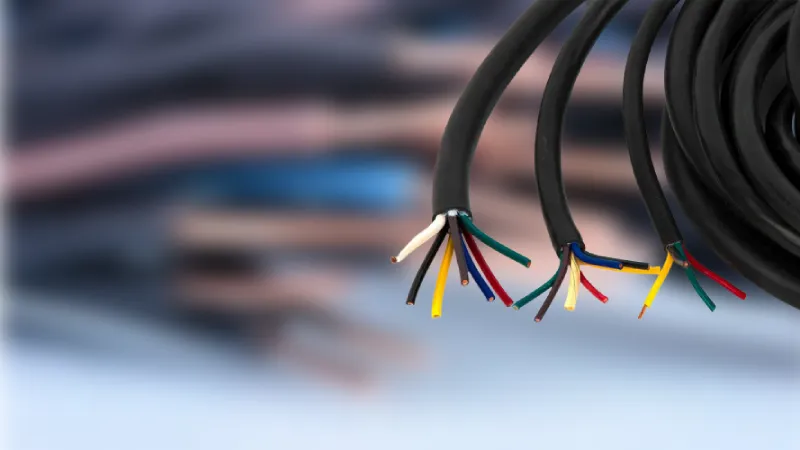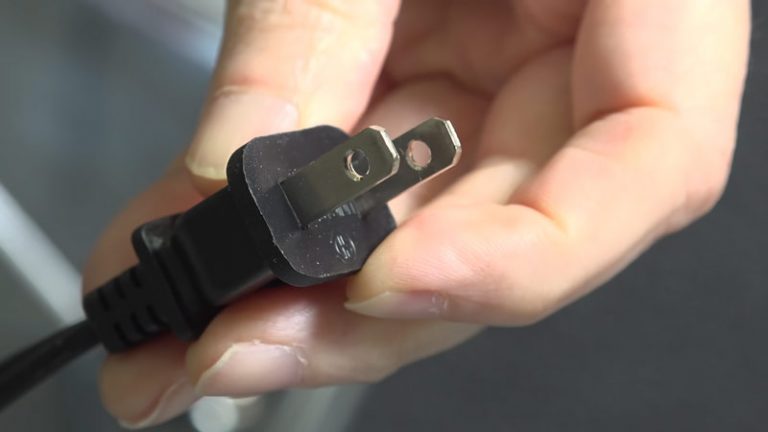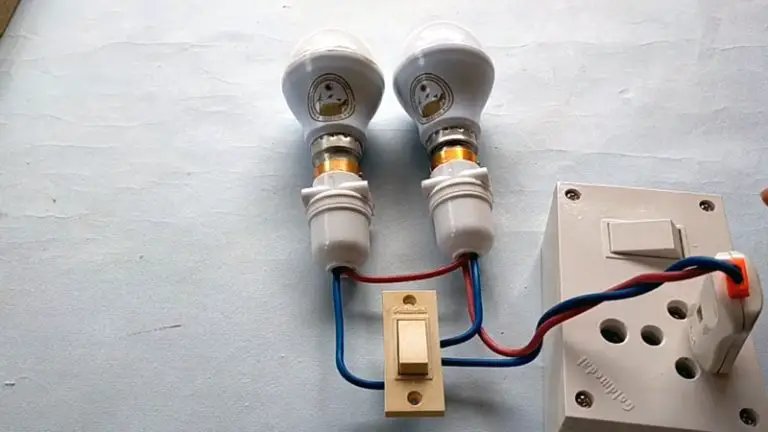Can I Use 14 2 Wire for 240v?

14/2 wire is a common type of electrical wire that is often used for residential wiring purposes. It consists of two wires, one coated in colored insulation and the other coated in white insulation, and is designated by its gauge size and the number of wires it contains.
In this case, the wire is 14 gauge and contains two wires. When it comes to using 14/2 wire for 240V circuits, it is important to make sure that the wire is rated for the appropriate voltage and amperage to ensure the safety and proper functioning of the electrical system.
In this article, we will delve into the specifics of 14/2 wire and its use in 240V circuits, including its construction, common applications, and safety considerations.
You'll Learn About
What Is 14/2 Wire?
Wire gauge refers to the thickness of the wire and is typically designated by a numerical value. The higher the number, the thinner the wire. In the case of 14/2 wire, the “14” refers to the wire gauge, which means that it is a relatively thin wire. Wire gauge is important because it determines the wire’s ability to carry electrical current.
Thinner wires have a higher resistance to electrical current and can become overheated if used in high-amperage circuits, while thicker wires have a lower resistance and are able to handle higher amperages more safely.
14/2 wire is a type of electrical wire that is often used for residential wiring purposes. It consists of two wires, one coated in colored insulation (usually black or red) and the other coated in white insulation.
The colored wire is known as the “hot” wire and is used to carry electrical current from the power source to the device or appliance being powered. The white wire is known as the “neutral” wire and is used to complete the electrical circuit and provide a return path for the current.
14/2 wire is commonly used to power a variety of devices and appliances in the home, including lighting fixtures, receptacles, and small appliances. It is also often used to wire home security systems and other low-voltage systems.
The wire’s small size and flexibility make it easy to install in tight spaces, such as inside walls or in crawl spaces. It is important to note, however, that 14/2 wire is not suitable for use in high-voltage or high-amperage circuits, as it is not robust enough to handle the electrical load.
Can I Use 14 2 Wire for 240v?
14/2 wire is a type of electrical wire that is often used for residential wiring purposes. It consists of two wires, one of which is coated in colored insulation (usually black or red) and the other of which is coated in white insulation.
The “14” in the name refers to the wire gauge, which measures the thickness of the wire. In this case, the wire is 14 gauge, which is a fairly common size for residential wiring. The “2” in the name refers to the number of wires in the cable. In this case, there are two wires, which are used to carry electrical current from the power source to the device or appliance being powered.
When it comes to using 14/2 wire for 240V circuits, there are a few things to keep in mind. First, it’s important to make sure that the wire is rated for the voltage of the circuit it will be used in. In this case, the wire should be rated 240V, which is the voltage of the circuit.
Additionally, it’s important to make sure that the wire is rated for the appropriate amperage. In general, 14 gauge wire is suitable for circuits with a maximum current draw of 15 amps. However, it’s always a good idea to double-check the ratings of the wire and the circuit to ensure that they are compatible.
In summary, 14/2 wire is a type of electrical wire that is often used for residential wiring purposes and can be used in 240V circuits as long as it is rated for the appropriate voltage and amperage. It is important to always follow proper wiring techniques and guidelines to ensure the safety of the electrical system.
Uses Of 14/2 Wire
14/2 wire is a versatile type of electrical wire that is commonly used in a variety of residential applications. Some common uses of 14/2 wire include:
Lighting fixtures: 14/2 wire is often used to wire lighting fixtures in the home, including ceiling lights, wall sconces, and floor lamps.
Receptacles: 14/2 wire can be used to wire electrical receptacles, also known as outlets, which are used to power a variety of electrical devices and appliances.
Small appliances: 14/2 wire can be used to power small appliances, such as toasters, coffee makers, and electric grills.
Home security systems: 14/2 wire is often used to wire low-voltage home security systems, including door and window sensors, motion detectors, and alarm panels.
Other low-voltage systems: 14/2 wire may also be used to wire other low-voltage systems in the home, such as doorbells, thermostats, and smoke detectors.
It is important to note that 14/2 wire is not suitable for use in high-voltage or high-amperage circuits, as it is not robust enough to handle the electrical load. It is also important to follow proper wiring techniques and guidelines to ensure the safety of the electrical system.
Voltage Rating For 14/2 Wire
The voltage rating of an electrical wire refers to the maximum amount of electrical voltage that the wire is able to safely carry. It is important to use wire that is rated for the appropriate voltage in order to ensure the safety and proper functioning of the electrical system.
In the case of 14/2 wire, it is typically rated for use in 120V circuits, which is the standard voltage for most residential electrical systems in the United States. However, some appliances and devices, such as electric heaters and some large appliances, may require 240V to function properly. In these cases, it is important to use wire that is rated for 240V.
240V circuits are electrical circuits that operate at a voltage of 240 volts. They are typically used to power high-wattage appliances and devices, such as electric heaters, large air conditioners, and electric stoves. 240V circuits are more powerful than 120V circuits and require more robust wiring to safely handle the increased electrical load.
It is important to note that the 14/2 wire is not suitable for use in 240V circuits, as it is not robust enough to handle the increased electrical load. In order to safely power appliances and devices that require 240V, it is necessary to use wire that is rated for 240V and is able to safely handle the increased amperage.
Amperage Rating For 14/2 Wire
Amperage, also known as electrical current, refers to the flow of electrical charge through a conductor, such as a wire. In electrical circuits, amperage is an important factor to consider, as it determines the amount of electrical power that the circuit is able to safely handle.
The amperage rating of electrical wire is an important consideration, as it determines the wire’s ability to safely carry electrical current. In general, the thicker the wire, the more amperage it is able to safely carry.
14 gauge wire is a relatively thin wire and is not suitable for use in high-amperage circuits. In general, 14 gauge wire is rated for a maximum current draw of 15 amps. This means that it is suitable for use in circuits with a maximum current draw of 15 amps or less.
It is important to note that the maximum current draw of a circuit is not the same as the circuit’s amperage rating. The amperage rating of a circuit refers to the maximum amount of electrical current that the circuit is able to safely handle, while the current draw of a circuit refers to the actual amount of electrical current being used by the devices and appliances powered by the circuit.
In comparison to other wire gauges, 14 gauge wire is relatively thin and is not suitable for use in high-amperage circuits. Thicker wire, such as 12 gauge or 10 gauge wire, is able to safely carry more amperage and is generally used in circuits with higher current draws.
Safety Considerations When Using 14/2 Wire For 240V Circuits
It is important to follow proper safety guidelines when working with electrical wiring to ensure the safety of the electrical system. When using 14/2 wire for 240V circuits, there are a few key safety considerations to keep in mind:
Use Wire That Is Rated For The Appropriate Voltage
As mentioned earlier, it is important to use wire that is rated for the appropriate voltage to ensure the safety and proper functioning of the electrical system. 14/2 wire is typically rated for use in 120V circuits and is not suitable for use in 240V circuits.
Follow Proper Installation Techniques
When installing electrical wiring, it is important to follow proper installation techniques to ensure the safety of the electrical system. This includes using appropriate wire connectors and securing the wire to the appropriate fixtures and devices.
Use Appropriate Wire Connectors
It is important to use appropriate wire connectors to ensure that the electrical connection is secure and able to safely carry electrical current. Using the wrong type of connector or a damaged connector can create a safety hazard.
Use Appropriate Circuit Breakers
Circuit breakers are an important safety feature that protects the electrical system from overloads and short circuits. It is important to use circuit breakers that are appropriately sized for the electrical circuit and the devices and appliances being powered.
Perform Regular Maintenance
Regular maintenance of the electrical system is important to ensure its safety and proper functioning. This includes checking for and replacing damaged wiring, replacing worn or damaged outlets and switches, and checking for and replacing faulty circuit breakers.
By following these safety considerations, you can help ensure the safety and proper functioning of your electrical system.
Final Words
14/2 wire can be used for 240V circuits as long as it is rated for the appropriate voltage and amperage. It is important to always check the ratings of the wire and the circuit and follow proper wiring techniques and guidelines to ensure the safety of the electrical system.
However, it is important to note that 14 gauge wire is generally only suitable for circuits with a maximum current draw of 15 amps, so it may not be the best choice for high-demand applications.
Overall it’s important to consult with a licensed electrician or professional before making any changes to your electrical systems.


